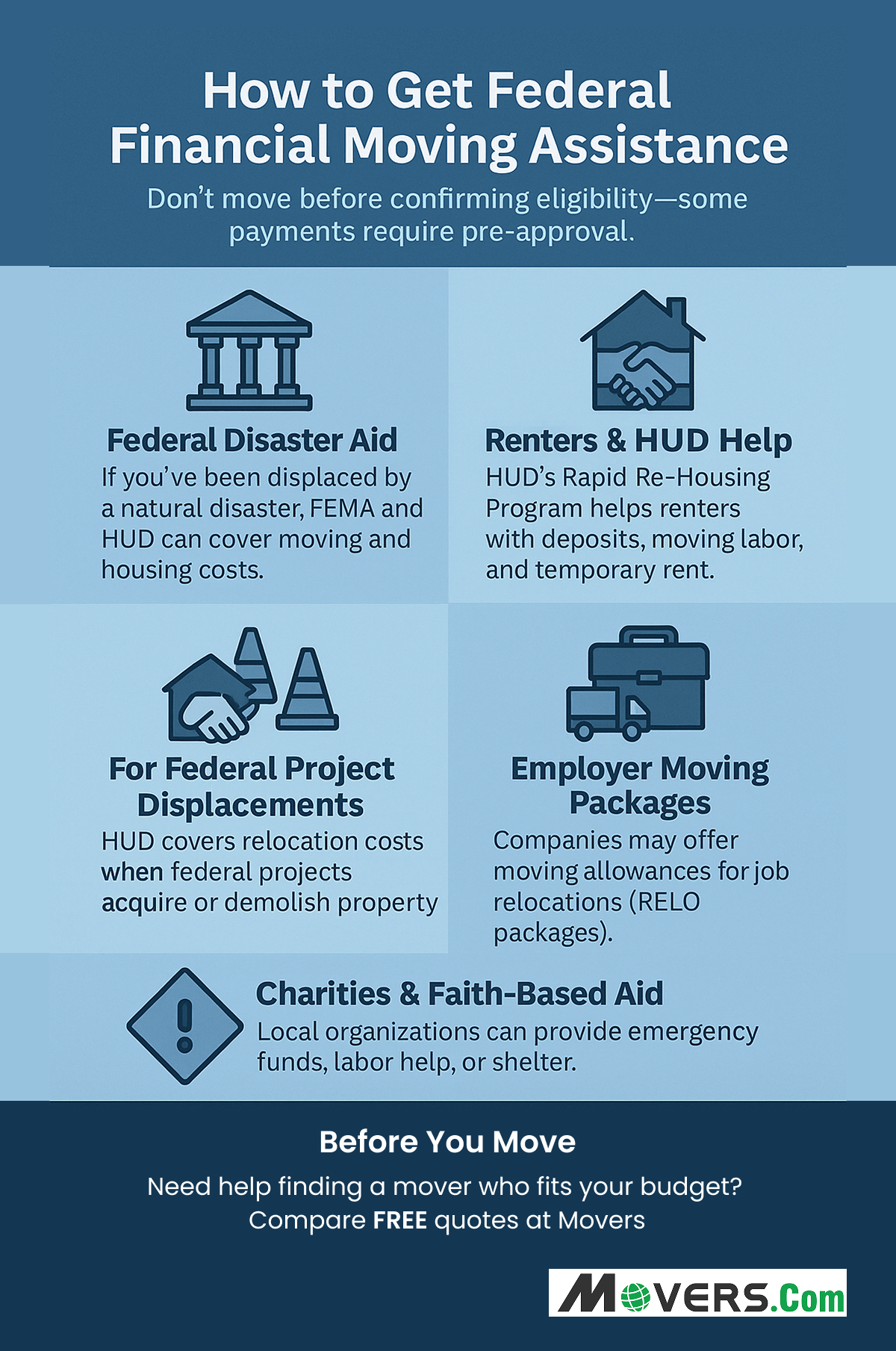Whether you're moving across town or across the country, moving expenses can quickly add up.
If you aren't careful, the process can get pricy. If you don't have the financial means to complete your move right away, there are ways to get financial help from the government to complete your move.
In this guide, let us explore some financial assistance options for moving.
Applying for federal assistance to cover moving expenses
If you're a victim of a natural disaster that has displaced you, you may be eligible to receive financial help for your moving expenses.
The Federal Relocation Assistance Program helps small businesses and individual families cover moving costs after a natural disaster.
Who can qualify for federal relocation assistance?
Small businesses can get help locating a new facility and financial aid for their moving expenses
The program will help pay for moving costs — including transportation, moving labor and the cost of deposits.
Applicants can also receive temporary assistance paying rent.
HUD also offers relocation assistance for tenants displaced from their homes as a result of demolition or acquisition for a project for which federal funds are being used.
Knowing your options for financial aid before moving
If you're notified that you will be displaced, it is important that you do not move before you know what you are entitled to.
Some programs have requirements you need to fulfill before you receive relocation payments.
Eligible residents will be notified that their options often include the following:
Payment for moving expenses
-
Payment for your actual reasonable moving and related expenses
-
Fixed moving expense and dislocation allowance
-
A combination of both based on circumstances
Replacement housing assistance
This will enable you to:
Asking your employer for financial assistance
If you're moving for a new job, you aren't eligible for federal aid, but your new employer might offer financial assistance for your move.
For example, if your employer requests you to move out of state for another position in the company, you may receive a moving allowance, known as a RELO package.
With a moving allowance you'll be able to pay for professional movers, deposits for rentals, utilities and even a hotel stay while traveling to your new location.
Depending on your employer's particular program, you might have to pay upfront and receive reimbursement by the company after a set amount of time in your new office.
Asking a church or charity for moving assistance
If you aren't eligible for federal relocation assistance, but still need some immediate funds for your move, try asking a local religious organization or charity to help.
Nationally recognized and larger community groups will donate money for rent, utilities or medical bills.
Smaller organizations assist in other ways — like offering you a place to stay or providing moving labor. Churches also have programs like Meals on Wheels if you are struggling and can't afford to eat.
TIP: Services may only be available if the organization's budget allows it. Don't panic if a group says no, because there are other non-profits that will have the means to help.
Conclusion
Financial assistance for moving can be sorted from federal government programs, employers, churches, and from various non-profit organizations.
Research your options and plan your move with necessary financial aid.
For info about moving estimate, talk to our live expert.
Get best rate that suits your move.
